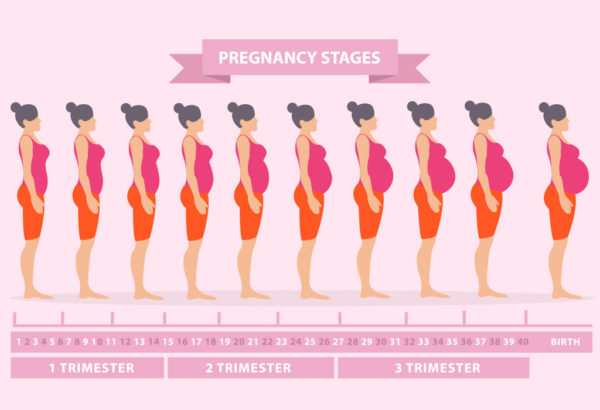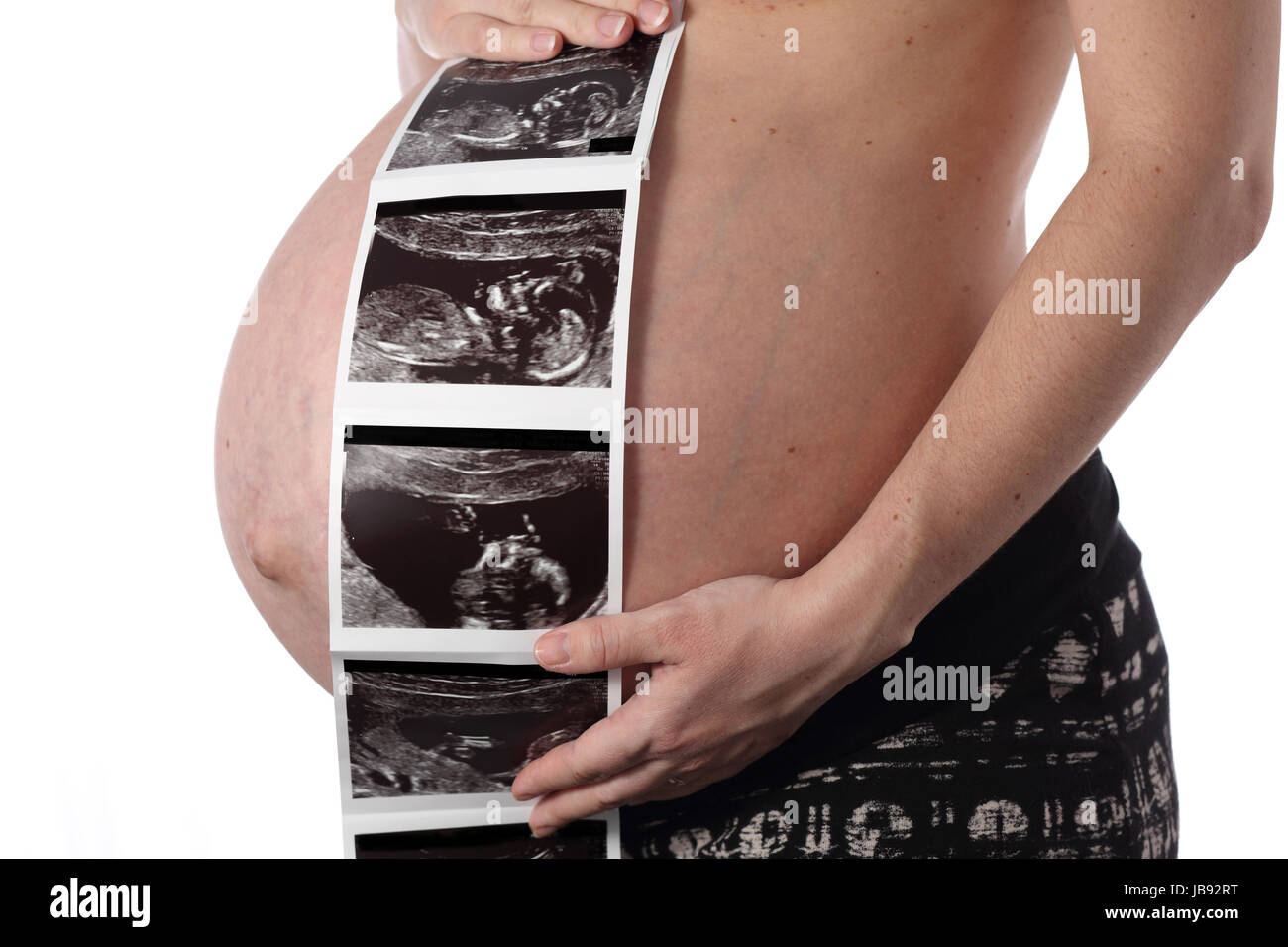Pregnancy is a beautiful journey filled with numerous physical and emotional changes. As a mom-to-be, understanding the signs and symptoms of pregnancy is crucial for healthy development and easing your mind. Among these symptoms, one that might catch you off guard is belly rumbles, or borborygmi, which is often heard as a gurgling or rumbling sound from your stomach. In this post, we'll explore what these sounds mean during pregnancy and why they're completely normal. Let’s dive into what you can expect!
What Causes Belly Rumbles During Pregnancy?

Belly rumbles during pregnancy can be attributed to a variety of factors that involve both your body and the baby developing inside of you. Here are some notable causes:
- Hormonal Changes: As your body adjusts to the hormonal shift, it affects digestion, leading to increased gas production and intestinal sounds.
- Growing Uterus: As the uterus expands, it may press against the intestines, causing changes in how gas and food move through your digestive tract.
- Increased Appetite: Many pregnant women experience food cravings or increased hunger, which can lead to the stomach making sounds as it processes more food.
- Digestive Slowdown: Pregnancy hormones, particularly progesterone, can slow down digestion, causing more fermentation of food in the gut and resulting in gurgles.
Additionally, the types of food you consume can influence these sounds. Foods that are high in fiber, sugars, or are particularly gas-inducing (like beans or carbonated drinks) may exacerbate the rumbling noises.
Lastly, it’s vital to remember that while belly rumbles during pregnancy are usually harmless, they can sometimes indicate other gastrointestinal issues such as bloating or constipation. If these sounds are accompanied by pain or significant discomfort, it’s always best to consult a healthcare professional for advice.
Common Pregnancy-Related Digestive Changes

Hey there, mama-to-be! As you embark on this beautiful journey, it's essential to know that your body is going through remarkable changes, especially when it comes to your digestive system. One common symptom you might notice is belly rumbles. But what’s going on under the hood? Let’s take a closer look at some common pregnancy-related digestive changes.
First off, hormonal shifts play a significant role. During pregnancy, the hormone progesterone increases, which can relax the muscles of your intestines. This relaxation often leads to:
- Slowed Digestion: Meals may take longer to process, causing that familiar belly rumble, especially after eating.
- Bloating: An increase in gas production can lead to that frustrating bloated feeling.
- Constipation: Many women experience this, creating additional discomfort and rumbles as food moves through a sluggish system.
Next, let’s consider the physical changes happening in your body. As your uterus expands, it takes up more space in your abdomen, which can influence how your digestive system functions:
- Pressure on the Stomach: This may lead to less room for food, and the subsequent gurgling as it tries to settle.
- Acid Reflux: As the growing uterus pushes against your stomach, you might experience a backflow of stomach acids, often accompanied by rumbles.
So, while belly rumbles are entirely normal during pregnancy, they serve as a reminder of the incredible changes your body is making to support a new life.
When to Worry About Belly Rumbles
While belly rumbles are a common part of pregnancy, there are instances when they might indicate something requiring your attention. Knowing when to consult with a healthcare provider can help you ensure both your well-being and that of your baby.
Here are some signs to watch for:
- Severe Pain: If your belly rumbles are accompanied by intense abdominal pain, this could signal a more serious issue.
- Persistent Symptoms: If you experience ongoing rumbles paired with consistent diarrhea or constipation, it may warrant discussing with your doctor.
- Fever: A high temperature alongside digestive issues is always a cause for concern; it might suggest an infection.
- Blood in Stool: This is never a good sign and demands immediate medical intervention.
- Severe Bloating: If bloating reaches a point where you feel uncomfortable or unable to function, it’s worth a chat with your provider.
Additionally, if you have a history of gastrointestinal issues or any underlying health conditions, it’s wise to keep closely monitoring those rumbles and discuss any changes with your healthcare team.
Remember, everyone’s experience is unique, and it’s okay to ask questions. Your intuition is a powerful tool during this time—trust it!
Home Remedies for Managing Digestive Discomfort
During pregnancy, it's completely normal to experience a range of digestive discomforts, including those annoying belly rumbles. Luckily, there are several home remedies that can help soothe your stomach and keep things moving smoothly. Here’s what you can try:
- Hydration: Drinking plenty of water is crucial. Not only does it aid digestion, but it also helps transport nutrients to your baby. Aim for at least 8-10 glasses a day.
- Ginger Tea: Ginger has been revered for its digestive benefits. You can brew fresh ginger in hot water, add a little honey if you like, and sip it to help alleviate nausea and promote digestion.
- Light Meals: Eating smaller, more frequent meals can ease the load on your digestive system. Try to incorporate lighter foods like yogurt, fruits, and vegetables.
- Probiotics: Foods rich in probiotics, such as yogurt, kefir, or fermented vegetables, can enhance gut health and help reduce bloating.
- Warm Compress: If you're feeling particularly uncomfortable, applying a warm compress to your belly can help relax the muscles and ease discomfort.
Remember that every pregnancy is unique, and what works for one person might not work for another. Always listen to your body and try these remedies in moderation to find what suits you best.
When to Consult a Healthcare Professional
While many digestive symptoms during pregnancy are perfectly normal, there are times when it’s essential to reach out to a healthcare professional. Here’s a handy checklist of signs that should prompt you to seek medical advice:
| Symptom | Action Required |
|---|---|
| Severe Pain: | Consult your doctor immediately. |
| Persistent Nausea or Vomiting: | Schedule an appointment to assess your condition. |
| Bloody Stool or Vomit: | This is a red flag; seek help right away. |
| Unusual Bloating: | If it lasts for a prolonged period, check with your healthcare provider. |
| Sweating, Dizziness, or Weakness: | Contact your healthcare professional for guidance. |
If you're ever in doubt, don’t hesitate to call your doctor. Better safe than sorry, right? Open communication with your healthcare provider will help keep both you and your baby happy and healthy.
Understanding Pregnancy Symptoms of Belly Rumbles
Pregnancy can bring a multitude of changes to the body, and one common symptom that many expectant mothers experience is the sensation of belly rumbles. These rumbles, also referred to as 'digestive noises' or 'borborygmi,' often raise questions about their significance and impact during pregnancy.
Typically, belly rumbles occur due to normal digestive processes and can be related to various factors:
- Increased Hormones: The surge in hormones such as progesterone can slow down digestion, leading to increased gas and rumbling sounds.
- Dietary Changes: Many pregnant women adjust their diets, incorporating new foods that may cause more gas or upset in the digestive system.
- Fetal Movement: As the baby grows, their movements can cause sensations and sounds in the abdomen that mimic typical digestive noises.
- Constipation: A common symptom during pregnancy, constipation can lead to more pronounced stomach sounds as your digestive system struggles to process food.
While belly rumbles are usually harmless, they can sometimes be indicators of something more concerning, such as:
| Potential Concerns | Symptoms to Monitor |
|---|---|
| Gas and Bloating | Cramping, persistent discomfort |
| Indigestion | Nausea, heartburn |
| Food Intolerances | Diarrhea, severe stomach pain |
In conclusion, while belly rumbles during pregnancy are generally normal and often linked to digestive changes, it's essential for expectant mothers to listen to their bodies and consult a healthcare professional if they notice any concerning symptoms or significant changes in their digestive health.
 admin
admin








